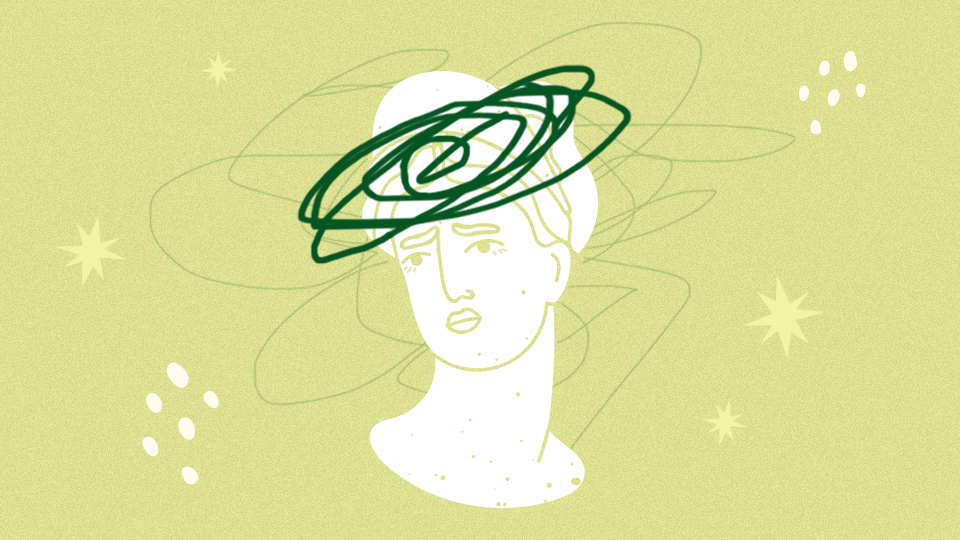What Is Psychodermatology? Your Mind & Skin’s Connection, Explained

It seems like there’s a new beauty industry buzzword every three days, right? But psychodermatology, the melding of the fields of dermatology and psychology, has been around for a while, with more and more people searching for it, commenting on it, and making content about it. It’s officially a thing… but really, what is psychodermatology?
In its simplest definition, “Psychodermatology simply refers to the mind-skin connection,” says Dr. Josie Howard, a board-certified psychiatrist, psychodermatology specialist, and Proactiv Scientific Advisory Board Member based in both San Francisco and Austin. This mind-skin connection has seen a boon since the start of the pandemic, when self-care and wellness was certainly top of mind. But what exactly does it entail, how do you find a provider, and is it just another area to feel like we’re falling short in? Here, all the answers to psychodermatology.
More from StyleCaster
What Is Psychodermatology?
As mentioned, it’s a mind-skin connection. “In its most reductive form, psychodermatology is a micro-discipline that focuses on the interface between diseases of the skin and mind,” says Dr. Evan Rieder, a board-certified dermatologist and psychiatrist based in New York who has been writing and working in this medical intersection since the late 2000s. “Psychodermatology can be divided into four main clinical categories: skin conditions that are exacerbated by our emotional state; emotional disturbances that develop in response to skin conditions; primary psychological disorders without real skin disease; and cutaneous sensory disorders which may or may not be associated with psychiatric issues,” explains Dr. Jessie Cheung, a board-certified, Chicago-based dermatologist specializing in aesthetics, hormones and sexual health, and regenerative medicine.

The Practice of Psychodermatology
Psychodermatology is, at least in the current zeitgeist and with its current naming, new. But the concept has been around for quite some time, dating back to Hippocrates. But our current lives—the stress of it all—has put more of a focus on the practice of psychodermatology. “The stress of the pandemic and the self-care movement have put a spotlight on psychodermatology, with the understanding that stress hormones negatively affect our skin by causing acne flares, hair loss, decreased microcirculation, and collagen breakdown,” says Dr. Cheung.
“There is certainly a cultural push towards wellness, optimizing mental health, and using self-care and skincare as vehicles to get to total body and mind optimization,” agrees Dr. Rieder, who notes that Gen Z in particular has had a hand in this holistic understanding of beauty and health. “A lot of this is coming from a place of lost control: an international pandemic, global conflicts, political and environmental instability, economic uncertainty, and more have led us to look for areas in which we can gain some semblance of control. Skin health and psychology are areas where we have the potential and desire to self-actualize.”
The Benefits, Considerations, & Limitations of Psychodermatology
“I think sometimes people misconstrue psychodermatology as a burden, something else to put on the self-care list—like meditating your way to clear skin,” says Dr. Howard. “Psychodermatology in its best form is really about living the fullest life possible in the skin you’re in.” Focusing on the idea of the mind-body connection is one way to understand your own skin cycles and struggles, and find the right approach for you. (Though sometimes, this mind-body connection needs more addressing by one practitioner than another. For example, if your stress relief takes on the picking of one’s skin, this may be cause for you to talk to a mental health practitioner, not just a dermatologist, notes Dr. Cheung. “These obsessive behaviors can lead to a vicious cycle.”)
In fact, Dr. Rieder notes that while psychodermatology is a burgeoning field, it’s a broad one, and many patients will perhaps find more solutions in talking to both mental health professionals and a dermatologist about skin conditions that are exacerbated by stress or vice versa. “Most people discussing psychodermatology mean well but have a cursory knowledge about the science and clinical presentation of these conditions,” he says. “There is a tendency to equate all skincare as psychodermatological. In some ways that is nice (if you treat your skin, you will feel better), but in others it’s quite simplistic to the point of being meaningless. There are a range of conditions that might be considered psychodermatological. This includes acne, the quintessential skin, psychology, and aesthetic condition, to conditions like body dysmorphic disorder and trichotillomania, which often require the expert care of a mental health professional.”

Should You See a Psychodermatology Specialist?
To find a “psychodermatologist” is a much harder thing to do than to understand the premise. “To clarify, this field is composed of dermatologists with mental health expertise and psychologists and psychiatrists with dermatology knowledge,” says Dr. Howard. She notes that there are three people in the country who are both board-certified in both psychiatry and dermatology. (Dr. Rieder, to note, is one of them.) “It’s important to find a provider who feels like a good fit for your needs—whom you can trust and feel comfortable discussing things that may be uncomfortable or embarrassing—like feelings of self-consciousness about skin outbreaks or the mental health impact of dealing with a skin condition. Oftentimes, this means finding a team of providers with complimentary knowledge and skills who can work together in a coordinated way.”
“In some ways, most dermatologists who practice in the medical or aesthetic sphere incorporate elements of psychodermatologic practice into their workday. For many it’s very minimal,” says Dr. Reider. “However, others might unknowingly do things that are more in line with mental health professionals, like supportive psychotherapy (talk therapy) with people who they think are vulnerable or give prescription medications that act on the nervous system instead of the skin.”
Reider adds, “When a dermatologist feels that they are out of their comfort zone or can no longer help, they will refer to a trusted colleague in the mental health sphere. Unfortunately, the practice of dermatology is based on high volume, short length patient interactions; most dermatologists do not have the bandwidth to take the time to do the lengthy evaluations that might be required for some complex disease processes.”
How to Implement the Idea of Psychodermatology Into Your Life
All three psychodermatology experts note the increased understanding of the connection between your mind and your skin. “Any skin condition that can be worsened by stress, or any skin condition that causes stress can be considered psychodermatological. The key for me is attempting to minimize stress in all forms. While we can do that on a cursory level in the skin through various topicals (and sometimes systemic medications), at home stress modulation can be a vital component of a comprehensive program,” says Dr. Rieder. “There is no exact prescription, and everyone will respond to a different set of stress modulating techniques. However, keeping your circadian rhythms regular (i.e. going to sleep and getting up at the same time), exercising, and doing some kind of mindfulness activity (e.g. meditation, muscle relaxation, even deep breathing) on a regular basis can have profound effects on your daily functioning and your wellbeing.”
“Basically, your skin reflects your internal health and your state of mind, and having healthy skin can boost your mood,” says Dr. Cheung. “I recommend working on your stress by doing whatever works for you—yoga, meditation, CBD, or Netflix. Start with your dermatologist if you’re having problems with your skin, and they can direct you to a psychiatrist or psychodermatology clinic if needed.”
All in all, know that you’re not alone in dealing with these issues, and having to figure out a routine that works best for you. “It is normal to experience impacts of skin issues that affect overall wellbeing and that this is something important to discuss with their provider—your feelings are valid and important,” says Dr. Howard.
Best of StyleCaster

